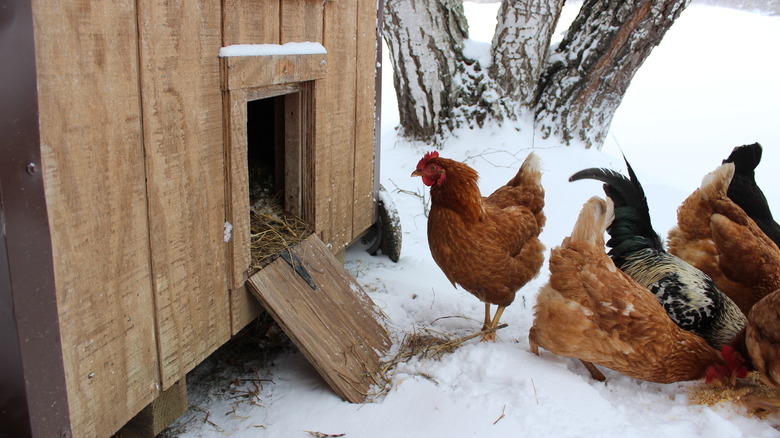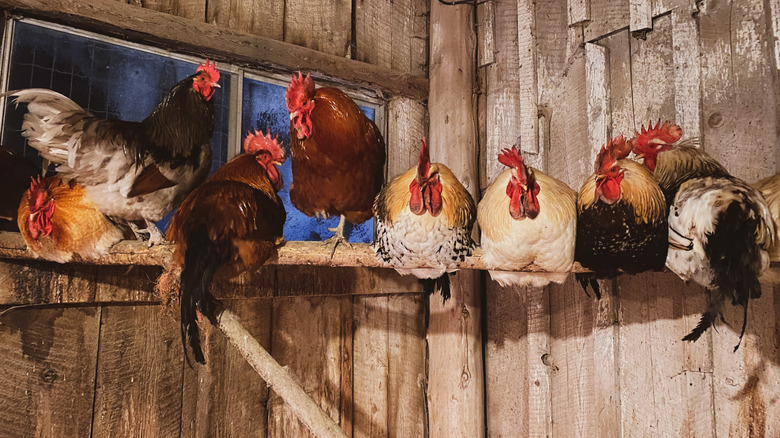What Types Of Chicken Coop Heaters Are Safest, According To Users?
We may receive a commission on purchases made from links.
It's estimated that more than 10% of American households own chickens, a trend that surged during the COVID-19 pandemic when people were stuck in their homes and seeking new hobbies. Plus, egg prices have been on the rise in recent years, making backyard chickens a popular investment. While many simply want easier access to eggs, chickens are also good with children and can be great pets.
When you adopt a dog or a cat, you know that you'll need specialized supplies, and the same holds true for chickens. Your first step should be to find a place to keep them. Chickens need a space that is safe from predators, where they can lay eggs and stay warm during extreme weather. A chicken coop provides that security and also allows the birds to socialize if you have multiple.
If you live in a climate with cold temperatures, however, you'll need to keep the chickens warm when winter comes. Just like you winterize your car or RV, there are several ways you can prepare a chicken coop for chilly temps. First, you'll want to fill any gaps or holes so the coop isn't drafty and create a wind block to keep out the breeze. Straw bedding will help with insulation, and warm dishes or a water heater will keep the water from freezing. To really keep your chickens comfortable in extreme temperatures, however, you'll want to consider supplement heat.
The best methods to keep your coop warm
Just as humans use heated gadgets to keep warm in a freezing office, there are several heating devices you can use for your chicken coop to keep your birds warm. You should avoid heat lamps because they are known fire hazards in chicken coops, where they can be knocked over and catch straw bedding on fire. Space heaters also come with safety risks because they can really ramp up heat fast.
It's usually not necessary to heat the entire coop; you just want to create a warm spot for the chickens to gather if they get cold. As such, your best bet will be a low-wattage radiant heater. Not only will it limit the ding on your electric bill, but these types of heaters will also allow the chickens to decide when they want to be close to the heat and when they feel more comfortable further away. As one chicken owner wrote on Chicken Whisperer, this can be helpful if you have other birds in the space that are more or less heat resistant. In a Reddit thread, several users reported that radiant heaters successfully kept their chickens warm without causing issues.
You could also use a flat panel heater, which has a thin profile and is also energy-efficient. Because many of these devices can be mounted to the wall, they're also a great choice for small spaces, with some specifically designed for chicken coops. On Amazon, people who used one such heater confirmed they were safe and easy to use, keeping their chickens warm without heating the space too much.

